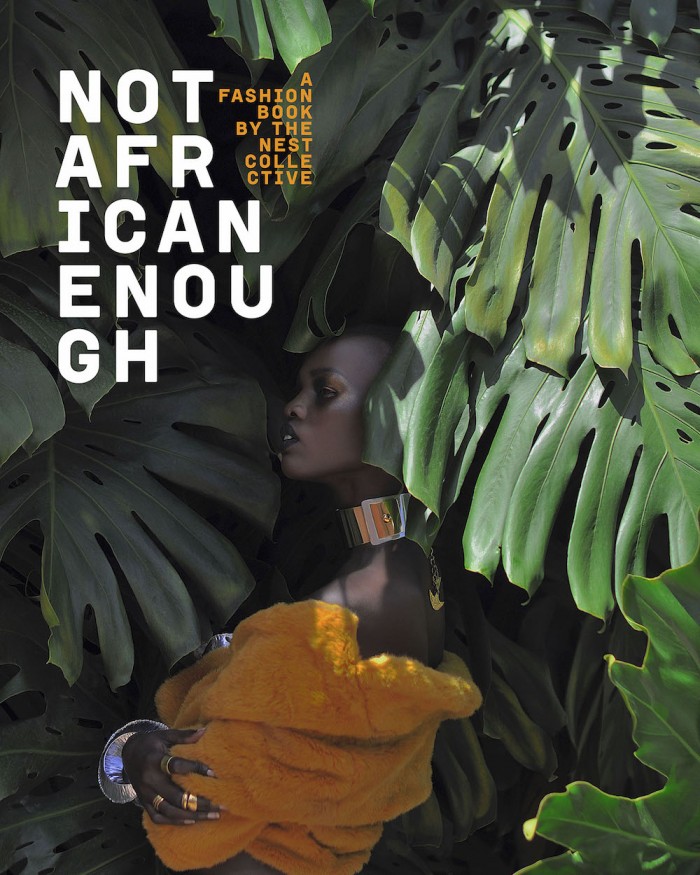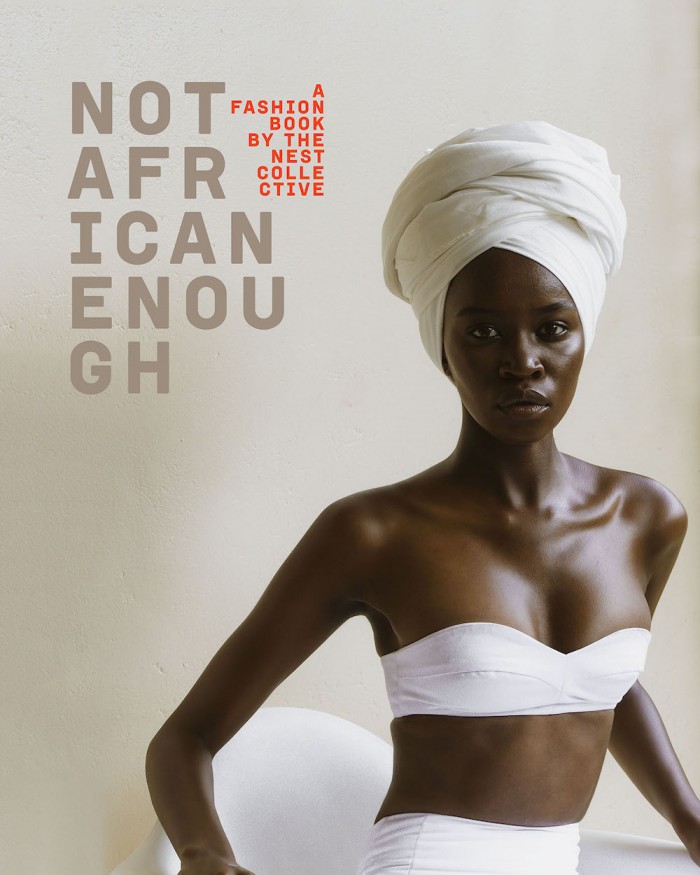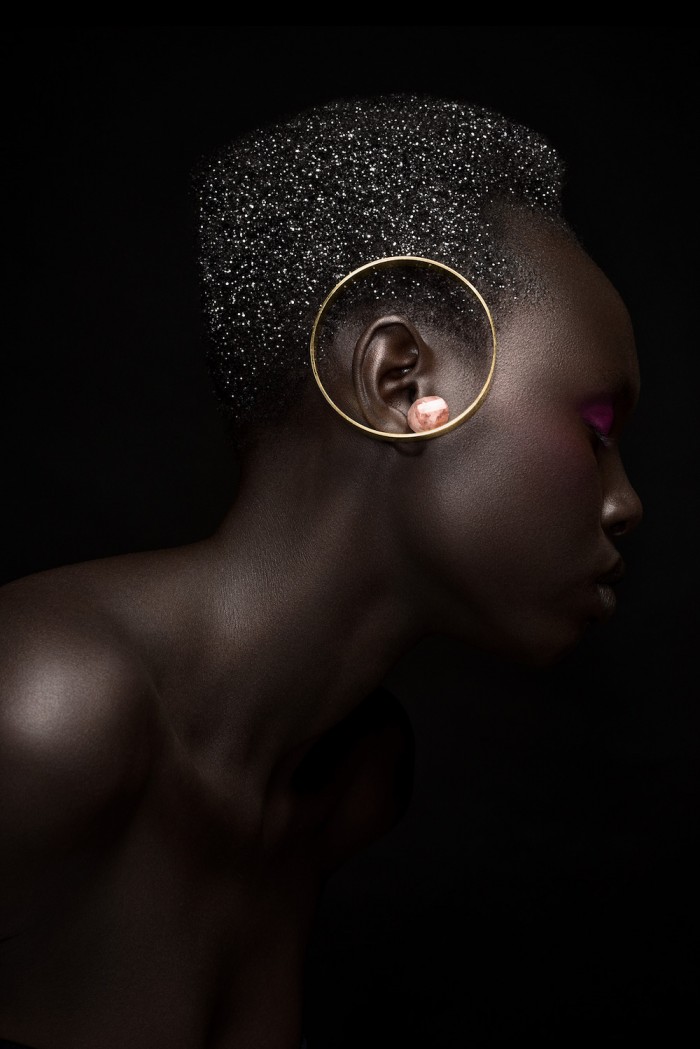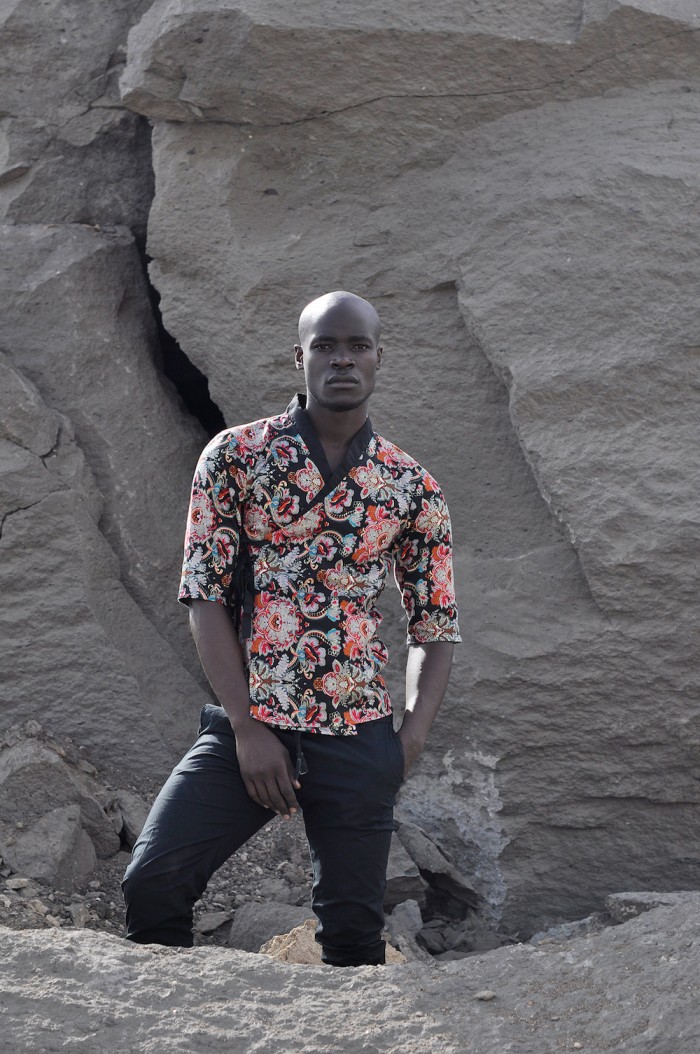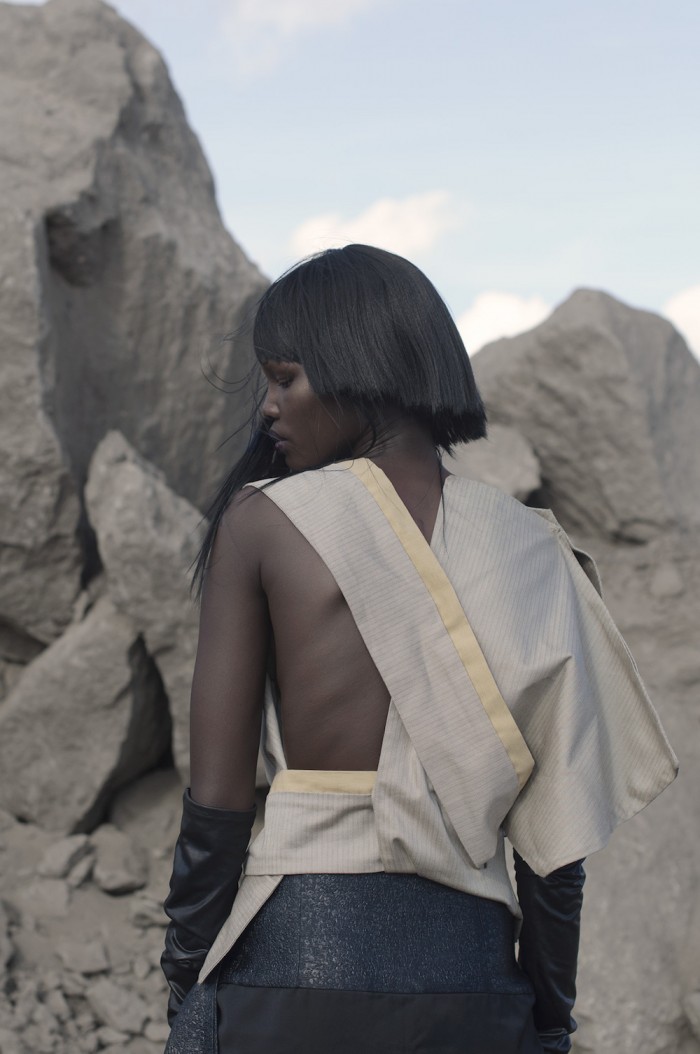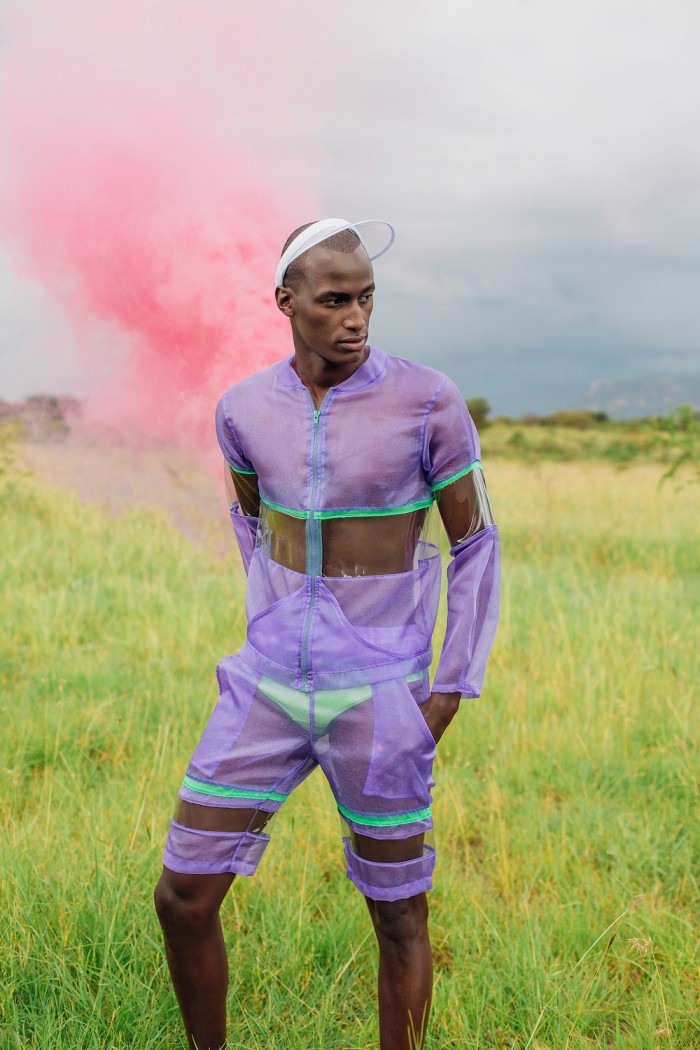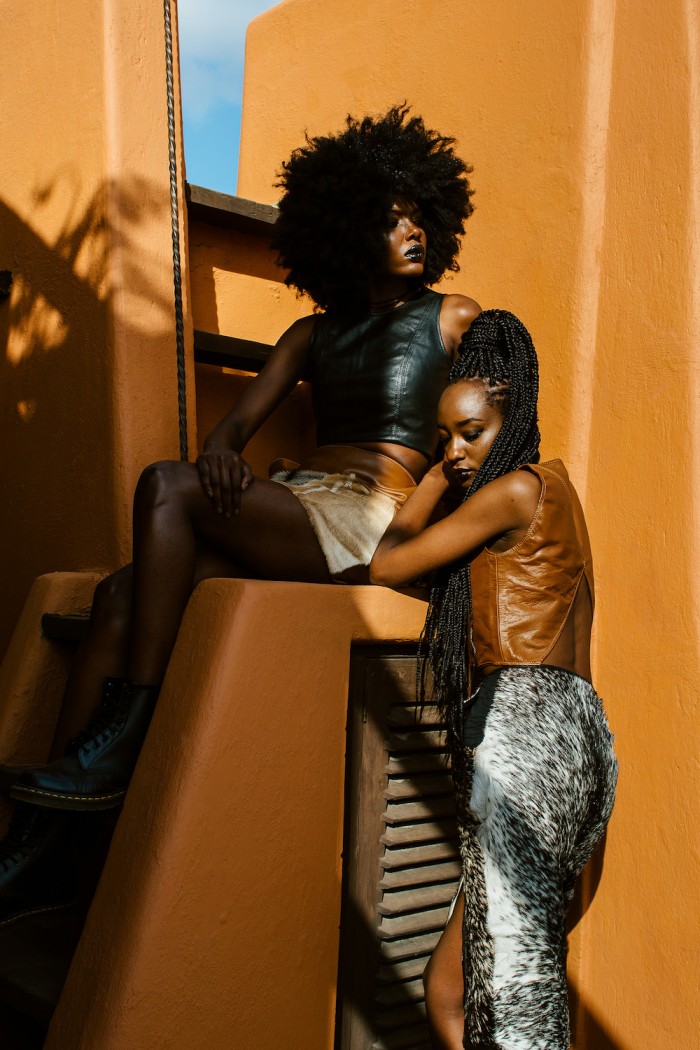This is not your average lookbook.
Not African Enough by Kenya’s The Nest Collective takes on the derogatory term it’s named after by reframing black, African people as humans rather than tokens to be fetishised and exoticised. Put simply, Kenyan designers are tired of being pigeonholed, and The Nest Collective is here to make sure they’re seen.
Founded in 2012, the Nest Collective have created critically-acclaimed work in film, literature, music and fashion. Now, their second book is designed to perform a fashion intervention and provoke conversation on African worldviews that go beyond crippling colonial stereotypes.
In their foreword, the group wrote: “This book, for us, is a part of that wider aspiration. In it we aim to dismantle this heavy super-concept ‘African’; the assembly of words, images, sounds, ideas, weaknesses, histories, and failings associated with the entire continent.” Led by the collective’s Sunny Dolat, the book poses some difficult questions about Western ideologies in Africa.
For a long time, the idea of Africanness had remained static because colonisation had a belittling effect on the way African people view their culture and the way African culture is seen by those outside its borders. Today, negative images of poverty, disease and scarcity still characterise mass media imagery of the continent.
As for the art world, “African art” has taken on a homogenous meaning despite the fact that trends, cultures, languages, and styles differ from country to country, city to city and individual to individual.
But all that is changing. To illustrate the multiplicity of Kenya’s fashion scene, the Nest Collective gathered some of the country’s top and emerging creatives.
In the first chapter, Joy Mboya, the director of the GoDown Arts Centre in Nairobi, unpacks Kenyan national identity and how it relates to art. In particular, a 2004 project titled Sunlight Quest for a National Dress is described as an attempt to create recognisable symbols of identity through fashion.
“There is also a greater desire for and consumption of clothing designed by Kenyans and inspired by Kenyan cultures,” she wrote. “It is possible that this set of brewing cultural conditions could better demonstrate the importance of national dress, beyond an abstract need to stand out from other Africans in international fora.”
With that, the book delves into the designers who are creating a new, diverse Kenyan aesthetic on the continent. Included is the work of Adèle Dejak whose signature material remains cow horn, Wambui Kibue whose pieces are influenced by Hollywood glamour, and Anyango Mpinga who harnesses feminine and masculine energy in her collections.
Jewellery designer Ami Doshi Shah explores her latest collection, Elements Contained, which she describes as a study in rich, textural contrasts. “As Kenyan designers, do we really need to include wax print in everything we do? It’s the easiest way for us to define ourselves as Africans, but it ignores the fact that we’re influenced by everything around us,” she writes.
Fashion designer Munga confronts rigid constructions of masculinity in fashion, shaking up the conventional streetwear scene in Kenya.
I am often accused of being ‘unmanly’, simply for introducing longer lengths and drapes into my work. I do enjoy working around our conservative ideas about what a man can wear. - Munga
Kepha Maina leans on his background in architecture to explore identity and history to create unique garments.
Firyal Nur Al Hossain’s colour-blocked sports garments are a reflection of the shifting mindset Nairobi’s youth.
Muqaddam Latif and Keith Macharia work under the name M+K. The studio works in a variety of leathers, demonstrating a nuanced understanding of femininity.
More books by African creatives:
Two young photographers take you on an aerial journer through Rwanda
Nigerian ad exec Feyi Olubodun on what brands get wrong about African consumers
Africa Rising by Design Indaba is a celebration of African creativity

